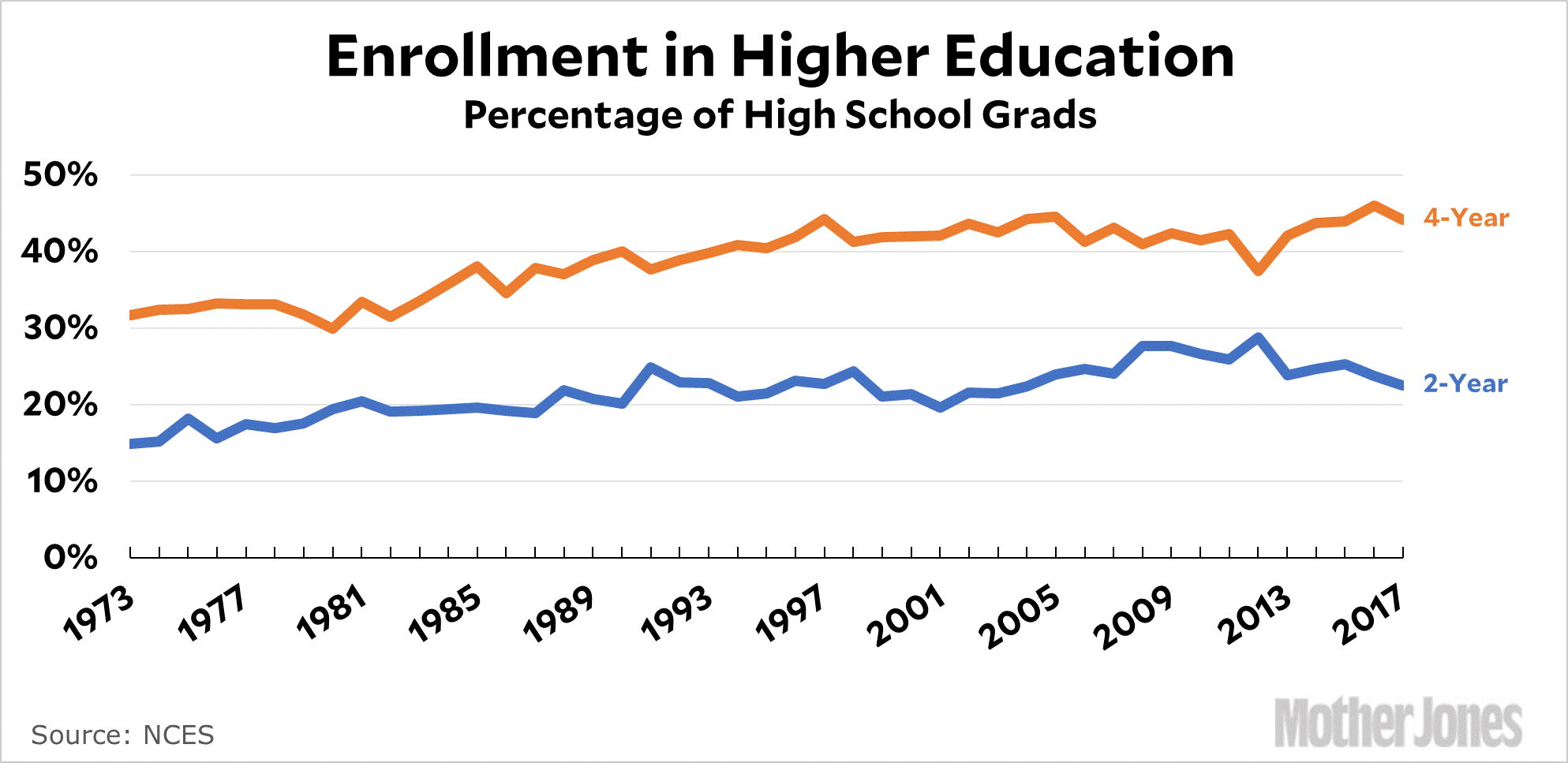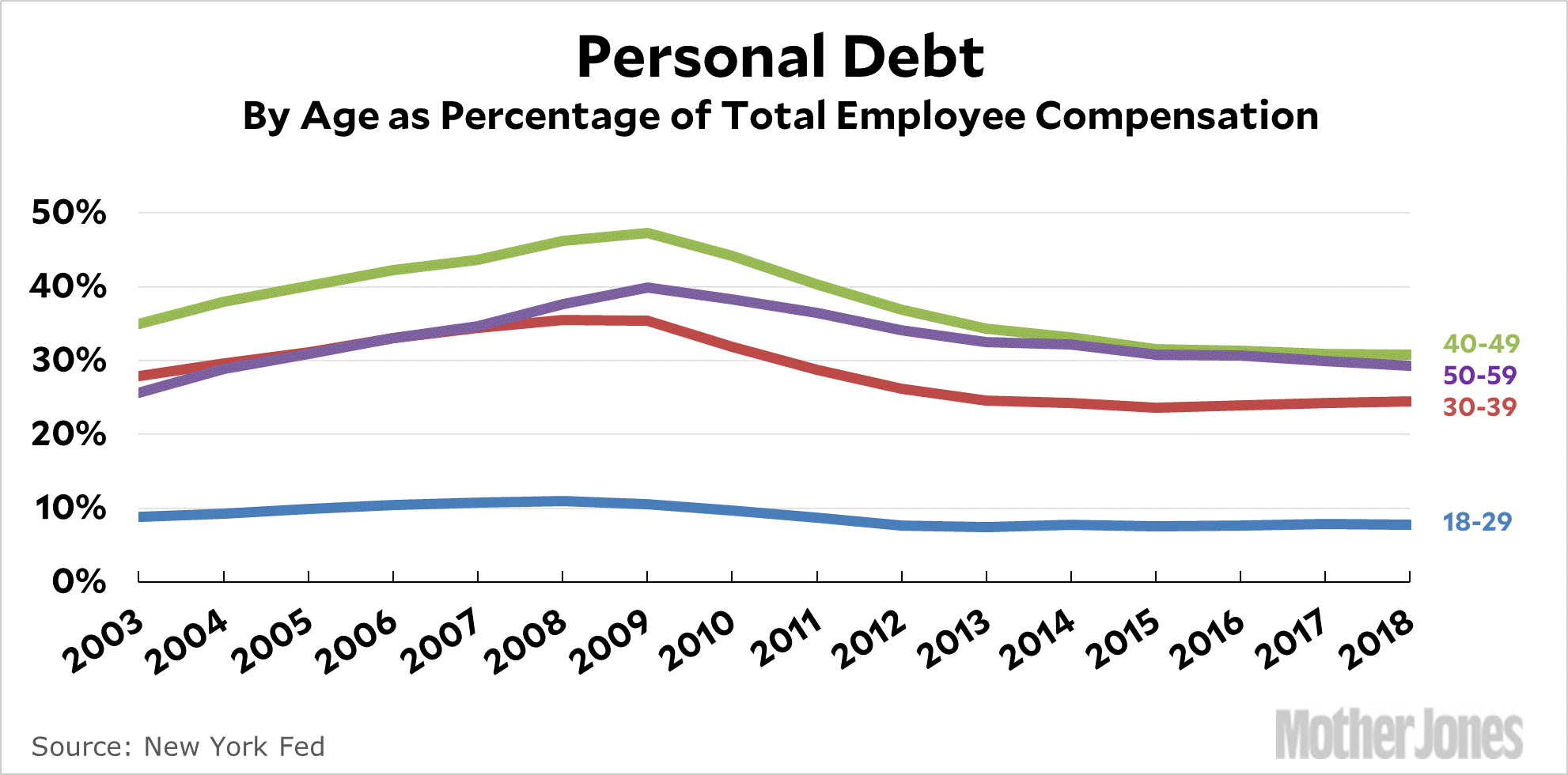Elizabeth Warren has announced a plan to forgive existing student debt and make public colleges free for future students. It’s an aggressive proposal because, as she says, “the time for half measures is over.” I continue to be ambivalent about this for several reasons:
- College graduates are our highest earners. Is it fair to tax everyone to subsidize them?
- Universities are mostly private or state-run. A federal plan to support state universities is just begging for states to invent ways to game the system.
- It’s an expensive proposal. Even if it’s a good idea, is it the best use of a trillion dollars we can think of?
One of the arguments in favor of Warren’s plan is that the high cost of college deters a lot of students from even enrolling. But that doesn’t seem to be true:

Another argument is that college loans have massively indebted young people. But on average, that doesn’t seem especially true either:

Nor is this decline in debt levels solely because young families are no longer buying houses. Among those under 35, the homeownership rate went up in the aughts and then down during the Great Recession—just as it did for every age group. However, in the end this has all washed out. The homeownership rate today is practically identical to the rate a quarter century ago: about 36 percent, down only slightly from 37 percent in 1994.
Obviously college loans deter some high school grads from pursuing higher education, and just as obviously they’re a huge burden on some graduates. They also prevent some young families from buying a house. But overall, is student debt a “crisis”? It’s a little hard to see it in the numbers.
This doesn’t mean I’m opposed to Warren’s plan. There are obvious benefits to society to motivate as many people as possible to get as much education as they can. I’m just not sure that free public college for everyone and debt cancellation for almost everyone¹ is the most sensible way of getting there.
My attitude is also partly driven by my twin obsessions with universal health care and climate change. If we’re going to spend large sums of money, I want to spend it there first. After we’ve done that it will be time to see how much appetite we collectively have for additional big-dollar programs.
¹Warren’s plan for debt cancellation is modestly means tested, so the affluent get only partial benefits. She says her plan will cancel all student debt for 75 percent of debtors and will cancel some debt for 95 percent of debtors.














